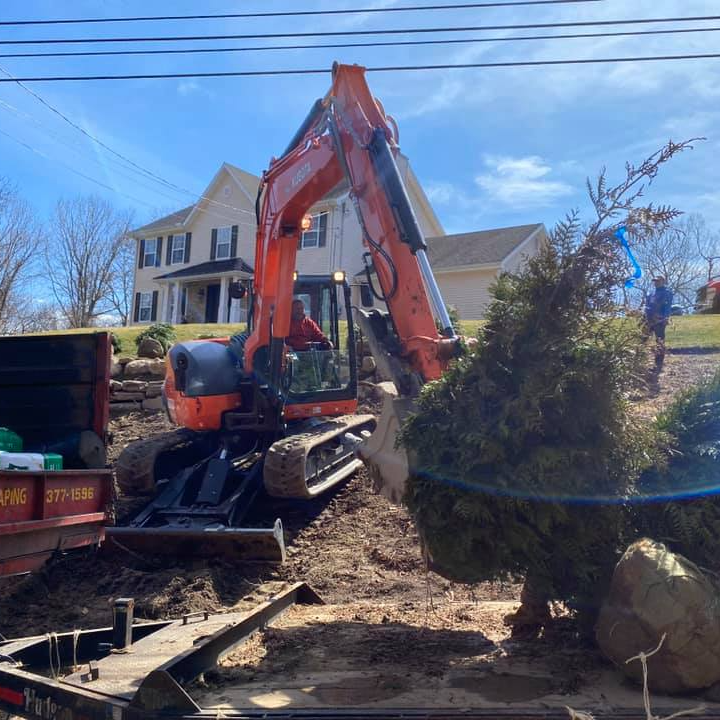Residential Excavating Ohio - Specialized Excavation for Ohio Houses
Comprehensive Excavation Methods: Grasping the Fundamentals for Success
In the world of building and construction and civil design, the relevance of efficient excavation approaches can not be overemphasized. The mindful preparation, specific implementation, and careful interest to detail called for in excavation jobs require a thorough method that includes numerous essential aspects. From preliminary dirt evaluation to the application of safety measures and routine progression surveillance, grasping these core elements is essential for achieving success in any kind of excavation undertaking. Nonetheless, the true mastery exists not simply in understanding these principles but in effortlessly integrating them to browse the complexities of excavation jobs with finesse.
Understanding Excavation Job Planning

Effective excavation tasks are improved the foundation of precise and complete preparation. The preliminary stage of any kind of excavation task is the drawing board, where crucial decisions are made that can dramatically impact the result of the project. During this phase, it is important to collect all pertinent info concerning the website, consisting of topographical surveys, dirt composition, and any potential dangers that might exist. Recognizing the project timeline, scope, and budget plan restrictions is critical for producing a detailed excavation plan that makes sure the job's success.
One key aspect of excavation project preparation is the development of a detailed timeline that details the sequence of landmarks, activities, and due dates. This timeline offers as a roadmap for the task group, permitting them to track development and make essential adjustments to make sure the task stays on routine. In addition, a distinct budget that represents all expenses, consisting of equipment leasing, labor expenses, and materials, is important for staying clear of cost overruns and hold-ups. By carefully thinking about all these aspects during the planning stage, excavation jobs can be implemented successfully and properly, resulting in successful end results.
Dirt Analysis and Site Evaluation
Conducting thorough soil evaluation and website analysis is a crucial action in the preparation stage of any kind of excavation task. Dirt evaluation involves identifying the structure, framework, and buildings of the soil at the excavation site. This info is vital for comprehending the dirt's bearing ability, dampness content, and potential for erosion, which are essential consider identifying the excavation techniques and tools required for the task.
Site analysis exceeds dirt evaluation and includes a wider analysis of the total site problems. This assessment consists of recognizing any prospective risks, such as below ground utilities, environmental problems, or unsteady surface, that could influence the excavation procedure. By completely examining the site, task managers can establish efficient excavation methods that focus on safety and security, effectiveness, and environmental protection.
Making use of innovative technologies like ground-penetrating radar, soil sampling, and drone studies can boost the accuracy and effectiveness of dirt analysis and website examination. Investing time and sources in these initial actions can ultimately conserve time and prevent costly hold-ups or complications throughout the excavation procedure.
Equipment Selection and Utilization
Reliable excavation projects count greatly on tactical tools option and usage to make certain optimal performance and productivity. Picking the best tools for the job is crucial in making the most of efficiency and reducing downtime. Aspects such as the sort of dirt, depth of excavation, and project range play a significant function in determining one of the most ideal tools for the job available.

In addition to picking the suitable devices, appropriate application is key to job success. Operators has to be trained to take care of the devices securely and successfully - septic ohio. Normal maintenance checks and timely repair services aid protect against breakdowns and guarantee consistent performance throughout the job
Security Measures and Rules Conformity
In the realm of excavation jobs, prioritizing security actions and conformity with regulations is paramount to ensuring a legitimately sound and secure operational environment. Safety and security measures incorporate a range of techniques, consisting of conducting extensive website assessments, applying correct signage and obstacles, and giving sufficient safety and security training for all personnel associated with the excavation procedure. Adherence to guidelines, such as OSHA needs in the USA, guarantees that the excavation project fulfills the essential standards to shield workers, spectators, and the surrounding setting.

Tracking Development and Adjusting Methods
Exactly how can project supervisors effectively track the development of excavation projects and adjust their methods appropriately to optimize outcomes? Surveillance progression is vital for guaranteeing that excavation projects remain on track and satisfy due dates. Project supervisors can utilize numerous tools and techniques to track progression, such as everyday report card, regular site examinations, and advanced monitoring technologies like drones and general practitioners tracking systems. By continuously checking the job's advancement, supervisors can identify any potential hold-ups or issues early and take aggressive procedures to address them.

Verdict
In conclusion, understanding the basics of extensive excavation strategies is essential for the success of any kind of job. By understanding task preparation, assessing dirt and site problems, picking proper tools, adhering to safety guidelines, and keeping track of development, project managers can make sure a smooth and efficient excavation process. Carrying out these methods will lead to successful end results and reduce possible dangers or troubles throughout the excavation project.
The preliminary stage of any kind of excavation job is the preparation stage, where important decisions are made that can substantially impact the end result of the project. Recognizing the project timeline, budget, and range restraints is check my site essential for developing a detailed excavation strategy that guarantees the job's success.
Exactly how can predict supervisors efficiently track the improvement of excavation tasks and adjust their techniques appropriately to enhance results? By very closely monitoring progression and being ready to adjust methods, project managers can boost the general success of excavation projects.
By understanding project planning, evaluating soil and site conditions, selecting appropriate equipment, complying link with safety policies, and keeping track of development, job supervisors can make sure a effective and smooth excavation process.